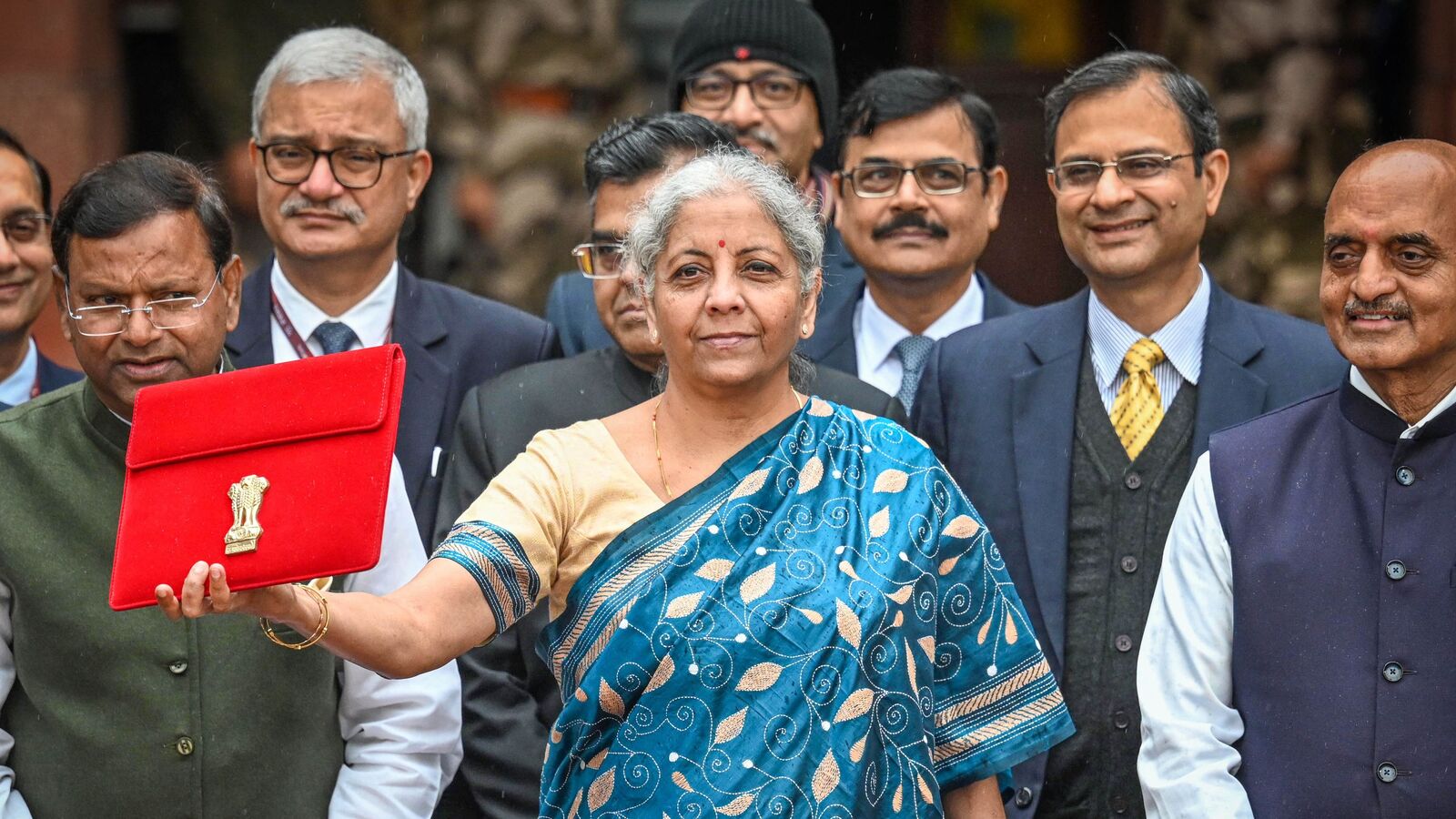Earlier today, finance minister Nirmala Sitharaman presented her sixth budget. The budget speech lasted just a little less than an hour and ran into all of 5,244 words—around 26% of the length of her first budget speech in 2019 and 25% of her second speech in 2020—basically telling us that the Modi government is confident of winning the next election.

View Full Image
Because if it wasn’t, it would have announced a slew of new programmes, sops and tax cuts for citizens, something that it has refrained from doing. In short, Sitharaman’s speech would have been much longer.
In fact, there were no changes on the tax front. As Sitharaman put it: “I do not propose to make any changes relating to taxation and propose to retain the same tax rates for direct taxes and indirect taxes.”
This, in its own way, is a good thing. An unstable tax regime with constant tinkering only makes chartered accountants more important in the financial system and isn’t good for either individuals or businesses.
Further, over the last few years, increasing capital expenditure to help the economy come out of the negative aftereffects of the covid pandemic has been a huge talking point of the government’s annual budget. Sitharaman in her speech talked about the “massive tripling of the capital expenditure outlay in the past 4 years”.
Indeed, the capital expenditure to be incurred in 2023-24, the current financial year, is expected to be more than 28% higher than in 2022-23.
A government that was not sure of its chances in the next election would have gone in for a similar or an even higher increase in capital expenditure. Other than the increasing expenditure having a multiplier effect on economic activity, it would have also given the government more talking points on social media, which is a very important form of communication in this day and age. But that doesn’t seem to be the case.
The capital expenditure for 2024-25 is expected to be at ₹11.11 trillion, a jump of a rather subdued 17% from the revised expected capital expenditure of ₹9.5 trillion in 2023-24.
Nonetheless, even this short speech had a few goodies for citizens.

View Full Image
Sitharaman talked about “a large number of petty, non-verified, non-reconciled or disputed direct tax demands”, some dating as far back as 1962, when the finance minister, who was born in August 1959, was just a three-year-old.
She proposed to “withdraw such outstanding direct tax demands up to ₹25,000 pertaining to the period up to financial year 2009-10, and up to ₹10,000 for financial years 2010-11 to 2014-15″. Anything that makes life simpler for income tax payers is always a welcome move.
Sitharaman also said that the Modi government plans to launch a scheme to help middle-class citizens living in rented houses, slums, chawls and unauthorised colonies to buy or build their own houses.
This is an interesting proposal, an Indian version of the great American dream, though what the government means by middle-class here needs to be well-defined, along with how it wants to go about implementing the scheme.
The finance minister further mentioned that the government will initiate the building of 20 million more houses over the next five years under the PM Awas Yojana (Grameen) scheme.

View Full Image
Another interesting proposal in the budget was rooftop solarization, where the plan is to enable 10 million households to obtain up to 300 units of free electricity every month, leading to annual savings of up to ₹15,000-18,000 for households “from free solar electricity and selling the surplus to the distribution companies”.
Over and above this, it was also announced that the government will build three major economic railway corridors—the energy, mineral and cement corridors; port connectivity corridors; and high traffic density corridors. These sound too general in nature. Hopefully, when the full budget is presented in July, as the current government expects to do, full details will be announced.
Of course, the budget speech had its fair share of political rhetoric using economic terms as well. Sitharaman told us that the government remains focussed on delivering GDP, i.e., “Governance, Development and Performance”. Or that the government continues to encourage sustained foreign direct investment (FDI) in India in the spirit of FDI, i.e.,“first develop India”.
Also, like any other budget speech, there was outright political rhetoric as well. Mentions of ‘Sabka Saath, Sabka Vikas’; ‘Sabka Saath, Sabka Vikas, and Sabka Vishwas’, ‘Sabka Prayas’, ‘Atmanirbhar Bharat’, and ‘Jai Jawan Jai Kisan Jai Vigyan and Jai Anusandhan’ were made.
Sitharaman also announced a white paper to be placed before Parliament, dwelling into the supposed mismanagement in the years before 2014, and drawing lessons from it. She also made points around how the Indian economy is in a strong position.
As she said: “Average real income of the people has increased by 50%. Inflation is moderate. People are getting empowered, equipped and enabled to pursue their aspirations.”
What wasn’t mentioned is the fact that private consumption expenditure, which forms a little less than three-fifths of the Indian GDP, is expected to grow 4.4% during 2023-24 (in real terms adjusted for inflation). Now, other than the covid pandemic year of 2020-21, when private consumption contracted 5.2%, this is the slowest growth since 2002-03, when it had grown 2.9%.
A huge chunk of India’s population is still suffering from the negative after-effects of the covid pandemic. Slow consumption growth is just an impact of that. Some steps to push up consumption growth would have been great.
Finally, as far as the main objective of the budget being a statement of account of the Central government is concerned, the finance minister said that the process of fiscal consolidation will continue, with the government looking to reduce its fiscal deficit below 4.5% of GDP by 2025-26. The fiscal deficit in 2024-25 is expected to be at 5.1%.
Fiscal deficit is the difference between what a government earns and what it spends, and is expressed as a proportion of the size of the Indian economy measured by its GDP.
Overall, the interim budget turned out to be a rather tepid affair, telling us that the Modi government remains supremely confident about winning the next Lok Sabha election.

View Full Image
The opening of the Ram Mandir in Ayodhya and the recent wins in the state assembly elections across the Hindi heartland seem to have buoyed the government’s confidence. That is reflected in the interim budget basically being a non-event.
At the time of writing this article at around 1.50 pm, the BSE Sensex, India’s most famous stock market index, was more or less unchanged from Wednesday’s end of trading.
Or as they say, no news is good news.
Vivek Kaul is the author of Bad Money.
#interim #budget #largely #nonevent #good #news



